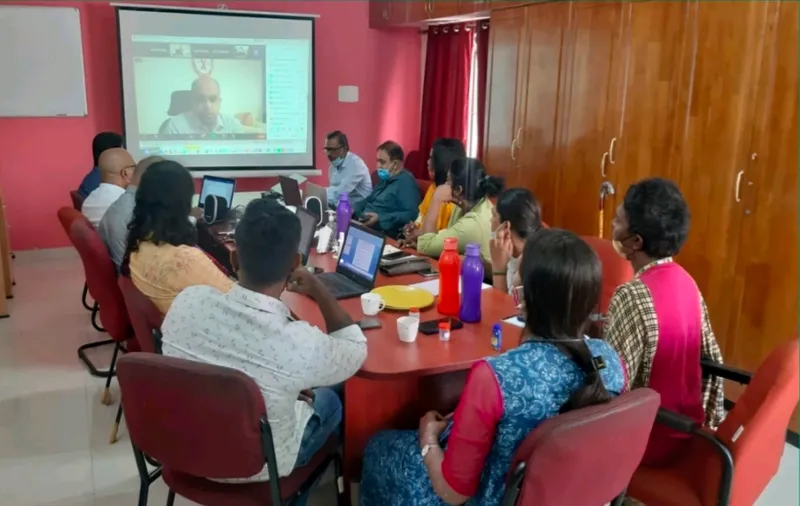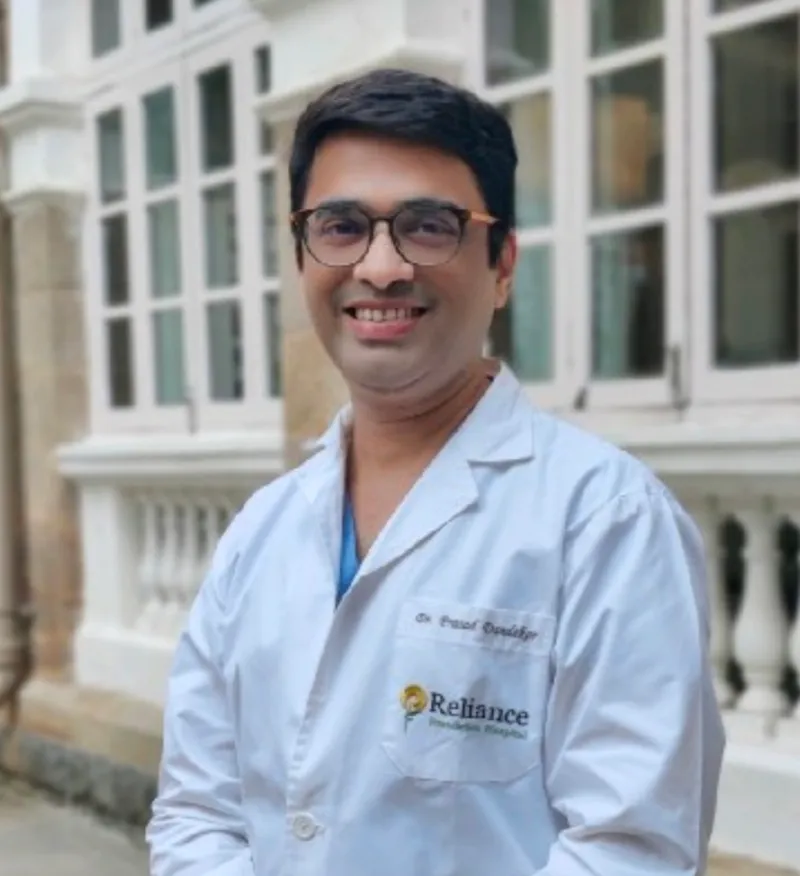Challenging biases, how orgs are making healthcare accessible to LGBTQ community
Hospitals in India are often prejudiced against LGBTQIA+ care seekers. But a few allies and community members are working hard to bring a change.
For Muhilann Murugan, coming out as gay to his family wasn’t easy. When he told them about his sexuality, they took him to a doctor in Chennai who promised to ‘cure’ him in six to seven sessions.
“On our very first visit—without a heads-up or consent—this sexologist asked me to remove my pants to conduct a penile doppler ultrasound (a test usually done to check for erectile dysfunction),” Murugan tells SocialStory.
In the months that followed, he left home on bitter terms, moved from Chennai to Pune, paid for college by housekeeping for a senior, found love, and built back bridges with his family who now live with him.
But month after month, the 27-year-old architect relives the ordeal—both mentally and monetarily.
He is still paying back the loan for the so-called treatment and medicines, which has compounded from Rs 63,000 to Rs 1.4 lakh.
The Indian healthcare system is rife with medical illiteracy, homophobia, and malpractice in queer health. This is despite the National Medical Commission banning conversion therapy in September 2022. It also asked for psychiatry and forensic medicine to become inclusive to the LGBTQIA+ community.
While much of the Indian healthcare community is late to the understanding, the World Health Organisation removed homosexuality from the category of mental disorder 33 years ago, and also removed ‘gender identity disorder’ from the International Classification of Diseases (ICB) in 2019.
Many doctors in India “persuade trans men seeking hysterectomies to get married and experience the ‘joy of childbirth’, or have an unhealthy and irrelevant curiosity about the sexual and reproductive organs of queer patients who go in for completely unrelated health conditions,” says L Ramakrishnan, Vice President of public health NGO SAATHII.
In 2021, the American Heart Association revealed transgender and gender-diverse adults are likely to have high rates of heart disease, and linked this to the stress that comes from discrimination and transphobia.
While there is little literature highlighting the experiences of Indian LGBTQIA+ individuals in hospitals, anecdotal evidence suggests that discrimination—denying entry into the hospital, refusal of treatment, lack of understanding about sex and gender-related diseases, and labelling non-heterosexual orientation as a psychological disorder—is common.
Entrenched biases
Even as queer-affirmative mental health professionals are on the rise, addressing the systematic exclusion of the community from physical healthcare has become a prerogative for queer organisations and support groups in the country.
Ramakrishnan also volunteers as a peer counsellor at Orinam, a collective for the rainbow community, that has put together a comprehensive list of LGBTIQA+ affirming healthcare providers on its website.
“Much of the medical community is still fixated on a very pervasive idea that biology is everything, and that a person’s gender is dictated only by their body parts, chromosomes and hormones,” says Ramakrishnan.

SAATHII's online training for TB service providers.
SAATHII, along with community partners, has been educating and sensitising private and public hospitals across India about gender identity and that it can be different from the sex assigned at birth.
In 2013, when he was appointed a member of the Transgender Committee formed by the Union Ministry of Social Justice, Ramakrishnan says he met doctors (also serving as policymakers in the Ministry of Health and Family Welfare) who were convinced that only a medical professional could determine whether one was transgender by examining their cells under a microscope. "In other words, they did not know the difference between being transgender and having an intersex variation related to chromosomes,” he says.
Such prejudice can result in LGBTQIA+ patients going undetected, receiving treatment late, or ending up with worse health outcomes.
In 2018, Mumbai-based oncologist Dr Prasad Raj Dandekar founded Health Professionals for Queer Indians (HPQI), an organisation that trains healthcare providers to the needs of the community.

Mumbai oncologist Dr Prasad Raj Dandekar runs Health Professionals for Queer Indians (HPQI), an organisation that trains healthcare providers to the needs of the community.
“People from different member groups of the spectrum may be more prone to specific health challenges. Mental health challenges may be high among transmen and the lesbian community, and STDs may be more common among gay and trans people. Most doctors often cannot perceive these complex dynamics,” says Dandekar.
Bringing reform
The Medical Students Association India (MSAI), a 20,000-member body, has been partnering with healthcare providers, policymakers, researchers, and LGBTQIA+ organisations to advocate for inclusive practices, policy reforms, and comprehensive training programmes that address these critical gaps.
“Insufficient training on LGBTQIA+ health concerns keeps professionals unprepared and insensitive when handling patients from the community; and the lack of data collecting and study in this area makes it difficult to comprehend the unique health issues, inequities, and dangers this varied demographic faces,” say representatives of MSAI. They add that advanced research in the field is stagnated due to low funds and resources.
Another big concern is the regressive curriculum in medical textbooks even two years after the National Medical Commission ordered publishers and medical schools to exclude discriminatory and unscientific portrayals of the LGBTQIA+ community.
“There is a classic book in forensic medicine—still in print—which says lesbians are highly prone to homicide and suicide, and calls them people with high sex drive and nymphomania. There is another one that says transsexualism and homosexuality are aberrant behaviours and disorders,” says Ramakrishnan.
He and other community partners are engaging with state governments and professional associations such as the Indian Academy of Pediatrics and the Federation of Obstetric and Gynaecological Societies of India to bring reform.
Dr Dandekar also highlights gaps in hospital infrastructure, including a lack of gender-neutral toilets and a third option in intake forms for people who identify neither as male nor female. “For many community members, family doctors cannot be trusted with their struggles. They put off going to the hospital to avoid questions on why they haven’t married or have children,” he says.
There is also an urgent need for gynaecologists to understand that people on the transmasculine spectrum may need to get pap smears and mammograms done, even though they don’t identify as female.
Queer-affirmative healthcare
For community members needing end-of-life care, queer-friendly doctors like Roop Gursahani, a clinical neurologist at P D Hinduja National Hospital, Mumbai, and Sneha Rooh, a palliative physician and therapist from Hyderabad—both of whom identify as queer—have been providing a safe space.
Many of the older community members have lived through times when it wasn’t easy or common to come out of the closet. “Non-heterosexual couples don’t have the legal right to be involved in the care and medical decision-making for a partner who may be suffering from any age-related or terminal illness,” says LGBT filmmaker Sridhar Rangayan.
The first step to any change is for the Indian healthcare system to be inclusive to aspiring queer professionals, says Sameera M Jahagirdar, a transwoman and doctor from Pune who's now based in London.
It took Jahagirdar nine years after her MBBS degree to do a post-graduation in anaesthesia as she battled severe clinical anxiety and depression after being outed by her family. “But even after I joined a prestigious institution and hospital in Puducherry as a professional, none of my decisions were ever followed—by ward boys, nurses and even my subordinates,” says Jahagirdar, now 46.
The point of no return came when she was sexually abused in the ICU while working. “My partner and I decided it was time to leave India,” says Jahagirdar who moved to London in 2020 where she now works as a speciality doctor in critical care at an NHS Trust hospital.
“Here, my gender identity or sexual orientation is of no consequence,” she says. “Here, I’m just a doctor and what I do matters the world to every person who walks into my office.”
(This copy was updated to correct some factual errors.)
Edited by Kanishk Singh






